Hanif Abdurraqib at Bookforum:
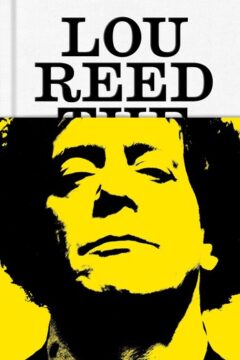 BEYOND AN OLDER SIBLING’S headphones wringing the sweet, distorted fuzz of the Velvet Underground out and into my ears, my second most notable encounter with Lou Reed was in the pages of the Lester Bangs anthology Psychotic Reactions and Carburetor Dung, which has a whole section dedicated to Bangs and his relentless sparring with Reed. A book within a book, almost. There are two interviews that would, today, seem alarming in both their approach and the nature of their candidness, with Bangs demeaning Reed’s pal David Bowie, Reed taking the bait, Bangs shouting that Reed is full of shit. The interviews go on like this, Bangs and Reed clashing, arguing loudly, or with an on-page ferocity that occasionally veered into affection. Reed clamors on about the drugs he consumes to survive, Bangs takes Reed to task for his songwriting’s increasing laziness. Ultimately, in the essays Bangs wrote about Reed, without Reed in the room, we find that these clashes, brutal and invasive as they might have seemed in the interview form, were born out of a writer being present with a subject he admired deeply, growing frustrated that the mythology he’d made of the subject wasn’t being manifested in the person he had been so fascinated by. This frustration inspired some terribly cruel writing that eventually led to a permanent falling-out between the two.
BEYOND AN OLDER SIBLING’S headphones wringing the sweet, distorted fuzz of the Velvet Underground out and into my ears, my second most notable encounter with Lou Reed was in the pages of the Lester Bangs anthology Psychotic Reactions and Carburetor Dung, which has a whole section dedicated to Bangs and his relentless sparring with Reed. A book within a book, almost. There are two interviews that would, today, seem alarming in both their approach and the nature of their candidness, with Bangs demeaning Reed’s pal David Bowie, Reed taking the bait, Bangs shouting that Reed is full of shit. The interviews go on like this, Bangs and Reed clashing, arguing loudly, or with an on-page ferocity that occasionally veered into affection. Reed clamors on about the drugs he consumes to survive, Bangs takes Reed to task for his songwriting’s increasing laziness. Ultimately, in the essays Bangs wrote about Reed, without Reed in the room, we find that these clashes, brutal and invasive as they might have seemed in the interview form, were born out of a writer being present with a subject he admired deeply, growing frustrated that the mythology he’d made of the subject wasn’t being manifested in the person he had been so fascinated by. This frustration inspired some terribly cruel writing that eventually led to a permanent falling-out between the two.
more here.

 In the aftermath of a disaster, our immediate reaction is often to search for some person to blame. Authorities frequently vow to “find those responsible” and “hold them to account,” as though disasters happen only when some grinning mischief-maker slams a big red button labeled “press for catastrophe.” That’s not to say that negligence ought to go unpunished. Sometimes there really is a malefactor to blame, but equally often there isn’t, and the result is that normal people who just made a mistake are caught up in the dragnet of vengeance, like the famous 2009 case of six Italian seismologists who were charged for failing to predict a deadly earthquake. But when that happens, what is actually accomplished? Has anything been made better? Or have we simply kicked the can down the road?
In the aftermath of a disaster, our immediate reaction is often to search for some person to blame. Authorities frequently vow to “find those responsible” and “hold them to account,” as though disasters happen only when some grinning mischief-maker slams a big red button labeled “press for catastrophe.” That’s not to say that negligence ought to go unpunished. Sometimes there really is a malefactor to blame, but equally often there isn’t, and the result is that normal people who just made a mistake are caught up in the dragnet of vengeance, like the famous 2009 case of six Italian seismologists who were charged for failing to predict a deadly earthquake. But when that happens, what is actually accomplished? Has anything been made better? Or have we simply kicked the can down the road?
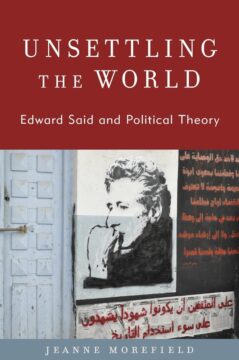 Edward Said, the 20th anniversary of whose death has just passed, was one of the United States’ greatest literary critics of the last 50 years. But he was also an intellectual, a figure who transcended or stepped beyond his professional location to think and speak publicly, about matters of public import, for and to a public.
Edward Said, the 20th anniversary of whose death has just passed, was one of the United States’ greatest literary critics of the last 50 years. But he was also an intellectual, a figure who transcended or stepped beyond his professional location to think and speak publicly, about matters of public import, for and to a public.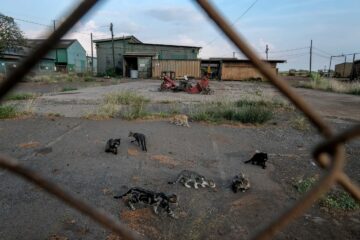 On a warm day last spring, dozens of protesters gathered outside a shopping center on the west side of Hawaii’s Big Island. They weren’t there to boycott a store or a pipeline or to deride a politician. They came to revolt against a new ban on feeding cats in the parking lot. “Stop starving the cats,” the protesters chanted, according to a
On a warm day last spring, dozens of protesters gathered outside a shopping center on the west side of Hawaii’s Big Island. They weren’t there to boycott a store or a pipeline or to deride a politician. They came to revolt against a new ban on feeding cats in the parking lot. “Stop starving the cats,” the protesters chanted, according to a 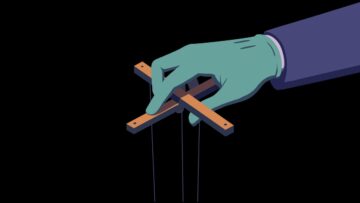 One evening in June 2023, Nicholas Wise, a fluid dynamics researcher at the University of Cambridge who moonlights as a scientific fraud buster, was digging around on shady Facebook groups when he came across something he had never seen before. Wise was all too familiar with offers to sell or buy author slots and reviews on scientific papers—the signs of a busy paper mill. Exploiting the growing pressure on scientists worldwide to amass publications even if they lack resources to undertake quality research, these furtive intermediaries by some accounts
One evening in June 2023, Nicholas Wise, a fluid dynamics researcher at the University of Cambridge who moonlights as a scientific fraud buster, was digging around on shady Facebook groups when he came across something he had never seen before. Wise was all too familiar with offers to sell or buy author slots and reviews on scientific papers—the signs of a busy paper mill. Exploiting the growing pressure on scientists worldwide to amass publications even if they lack resources to undertake quality research, these furtive intermediaries by some accounts 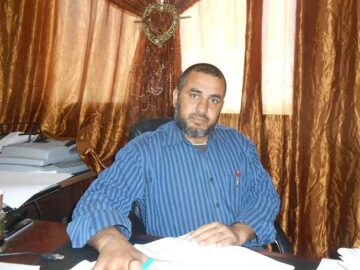 On Saturday, December 30, our front door was busted down, and twenty masked men barged in and took my father, a widely respected and deeply learned imam here in Gaza.
On Saturday, December 30, our front door was busted down, and twenty masked men barged in and took my father, a widely respected and deeply learned imam here in Gaza. Driverless cars and planes are no longer the stuff of the future. In the city of San Francisco alone, two taxi companies have collectively logged 8 million miles of autonomous driving through August 2023. And more than 850,000 autonomous aerial vehicles, or drones, are registered in the United States — not counting those owned by the military.
Driverless cars and planes are no longer the stuff of the future. In the city of San Francisco alone, two taxi companies have collectively logged 8 million miles of autonomous driving through August 2023. And more than 850,000 autonomous aerial vehicles, or drones, are registered in the United States — not counting those owned by the military. When we find words being used in a novel way, our countenances tend to stiffen. What’s going on here? Is this a euphemism? Is there a hidden agenda here?
When we find words being used in a novel way, our countenances tend to stiffen. What’s going on here? Is this a euphemism? Is there a hidden agenda here?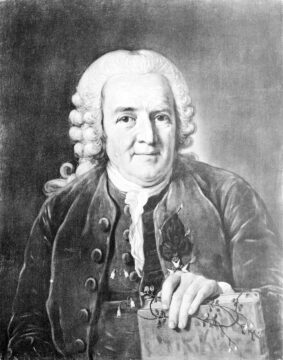
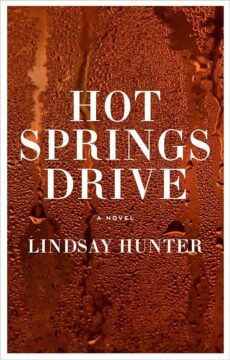 Lindsay Hunter: As I was drafting this novel, I was thinking of it as almost a shattered windshield, or a crazy quilt. Something made of shards but that, together, was a whole thing. Initially, I had Jackie in both first- and third-person narration. I wanted readers to have access to her story, the way she’d tell it, but also glimpse a more objective truth about her. I thought that was pretty clever.
Lindsay Hunter: As I was drafting this novel, I was thinking of it as almost a shattered windshield, or a crazy quilt. Something made of shards but that, together, was a whole thing. Initially, I had Jackie in both first- and third-person narration. I wanted readers to have access to her story, the way she’d tell it, but also glimpse a more objective truth about her. I thought that was pretty clever.  T
T Back in 2001, immunologist Pere Santamaria was exploring a new way to study diabetes. Working in mice, he and his collaborators developed a method that uses iron oxide nanoparticles to track the key immune cells involved in the disorder.
Back in 2001, immunologist Pere Santamaria was exploring a new way to study diabetes. Working in mice, he and his collaborators developed a method that uses iron oxide nanoparticles to track the key immune cells involved in the disorder.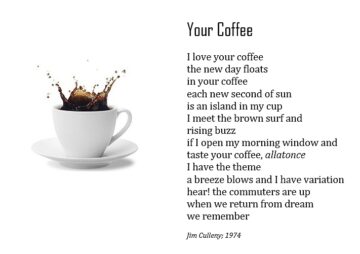
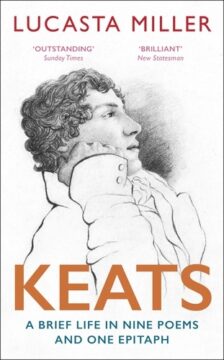 L
L